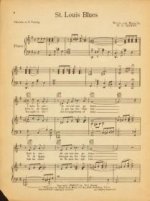TooLateTheHero
Member
- Joined
- Jul 12, 2015
- Messages
- 5
- Reaction score
- 0
Hi everyone!
I am very much interested in vintage ukulele songs, such as those by Johnny Marvin, Cliff Edwards or Roy Smeck, however I have had much trouble in finding chords and songbooks for these songs.
I noticed that Ian Chadwick was selling a large collection:
http://www.vintageukemusic.com/ordering.htm
However, it appears the information on his website is outdated and hasn't been updated for some time. I have tried contacting him at his given email address but have had little luck in doing so. If anyone could provide any assistance in this then I would be most grateful.
Perhaps I have missed something but I have indeed searched the forum and have not had a great deal of success in finding the songs I want (this is probably the moment you all tell me to try and work out the songs by ear )
)
Many thanks to all.
I am very much interested in vintage ukulele songs, such as those by Johnny Marvin, Cliff Edwards or Roy Smeck, however I have had much trouble in finding chords and songbooks for these songs.
I noticed that Ian Chadwick was selling a large collection:
http://www.vintageukemusic.com/ordering.htm
However, it appears the information on his website is outdated and hasn't been updated for some time. I have tried contacting him at his given email address but have had little luck in doing so. If anyone could provide any assistance in this then I would be most grateful.
Perhaps I have missed something but I have indeed searched the forum and have not had a great deal of success in finding the songs I want (this is probably the moment you all tell me to try and work out the songs by ear
Many thanks to all.

